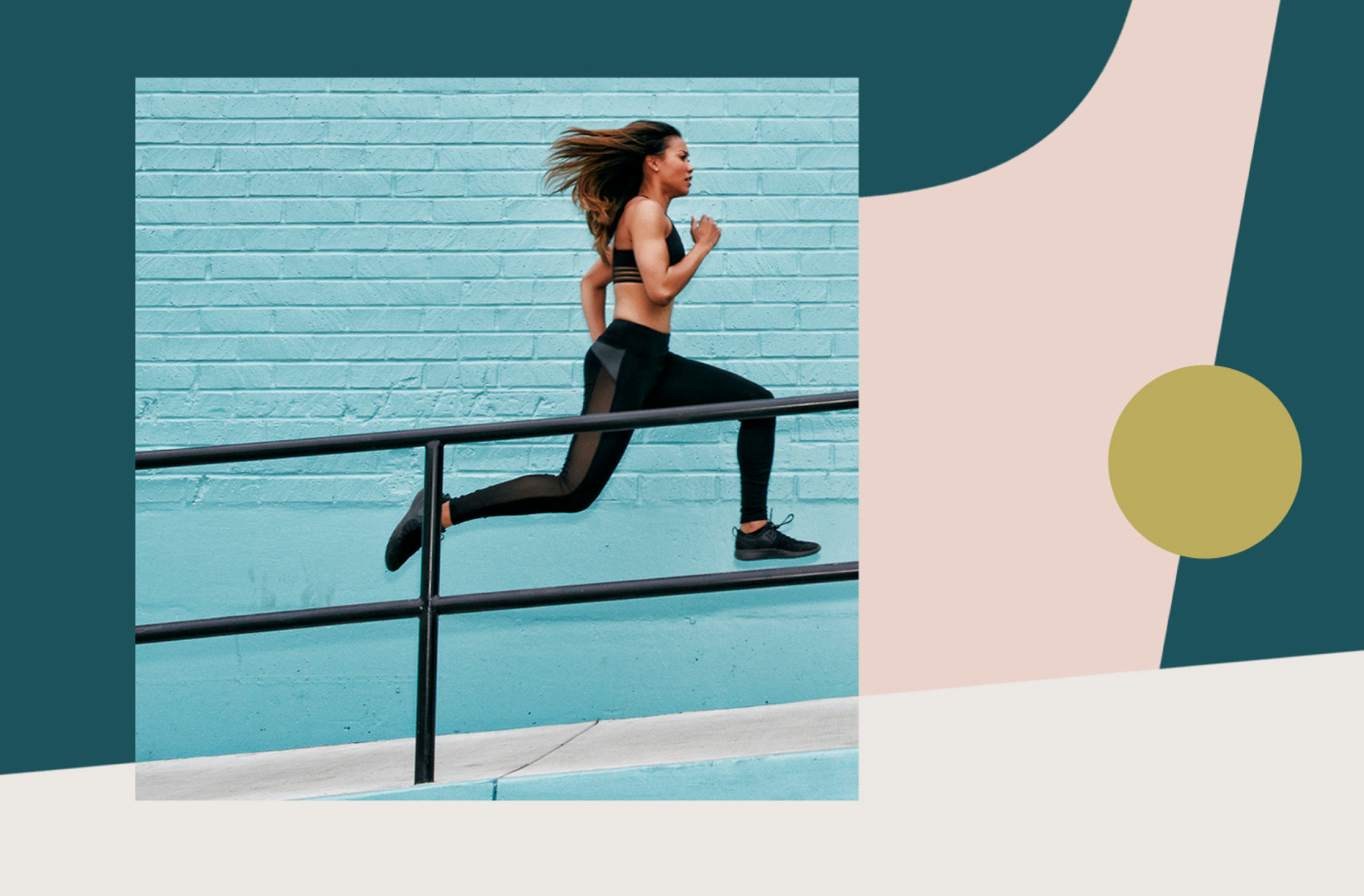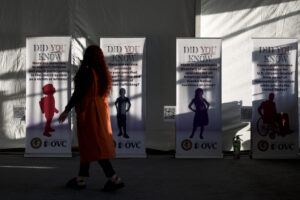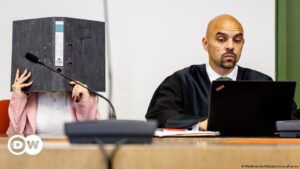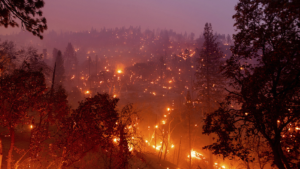For many Americans, decisions around wellness and self care include whether they prefer taking a spin class or doing yoga, or which facilities have classes to best fit their schedules. Their pursuit of fitness and being “well” could be viewed as a casual endeavor. For Black people, however, choices around health and wellness are quite literally life and death.
Long-standing health disparities have been on glaring display during the recent coronavirus pandemic, leaving Black people particularly vulnerable. Recent data from APM Research Labs shows the rate of death for Black Americans from COVID-19 is 2.4 times higher than white people, and 2.2 times the death rate of Asians and Latinxs. This is largely due to the social determinants of health that many Black people face, including where we live and work, and the quality of health care to which we have access.
As if that weren’t scary enough, current worldwide protests around racism and police brutality are highlighting the deadly threats Black people face doing simple things like jogging (Ahmaud Arbery), sleeping (Breonna Taylor), or shopping (George Floyd). As the world debates the value of Black lives and Black bodies, the ideas of wellness and self care take on an even more important role.
A 2016 article from U.S. News and World Report declared that “being Black is bad for your health.” Research determined “Blacks get sick at younger ages, have more severe illnesses and are aging, biologically, more rapidly than whites. Scientists call this the ‘weathering effect’, or the result of cumulative stress.” Black people, then, are investing in the practice of physical and mental health not just because we want to, but because we truly need to.
According to the American Psychological Association’s 2019 Stress in America Report, 63 percent of people of color (POCs) say that discrimination has hindered them from having a full and productive life. In the wake of recent news and events, that seems like a gross understatement, particularly for Black people. Our daily experiences include everything from microaggressions at work and constantly being othered, to watching the routine murder of Black people passed around social media. This type of continuous stress has a profound and lasting effect.
Is it any wonder, then, when Black people seek out spaces to practice wellness, that we might be hesitant to go to even one more place where we might be discriminated against, excluded, or questioned?
Why We Need Black Spaces
For most Black people in America—and in particular, Black women—feeling safe, seen, and supported on our wellness journeys is far from the norm. There’s a great chance that the newest fitness studio and the best local gyms and running trails aren’t ripe with people that look like us, despite the fact that our music, our culture, and our vernacular are prevalent in these spaces.
From mental health to body representation to safety, Black women experience wellness in ways that are unique and nuanced. Creating Black spaces in wellness for us, by us, is vital to being seen, to addressing these nuances, and to creating places—whether online or in-person—where we find safety, comfort, and community. Where we have the ability to relax and enjoy the pursuit of wellness and healing without having to explain, without being questioned, and without being mocked or regarded as a curiosity.
In addition, as small businesses struggle to survive extended government-mandated closures due to the pandemic, and many Black-owned small businesses are having trouble accessing the government’s emergency Paycheck Protection Program loans, the danger of losing many of the few Black spaces that currently exist is very real.
What Does It Mean for Something to Be a “Black Space”?
How can we focus on health and overall self-improvement when we’re constantly forced into awareness of our otherness? From the lack of diversity in photos on the walls to the products offered in the locker room, we’re aware that this place was not made with “us” at top of mind.
Any fitness studio can play trendy hip-hop music or boast brightly-colored murals of hip-hop icons, but that alone doesn’t make a space “Black.” The question is really, “How does this place make everyone feel?” What makes it feel like home?
ACCESS: Location, cost, and member approval processes can all be barriers to access with the wellness solutions we all need. The growth of the wellness industry overall is unmatched, yet representation in many of these businesses and platforms is still lacking. Even if you can afford a swanky boutique class, there’s no guarantee you’ll be made to feel welcome.
SAFETY: In order to truly begin the process of self care, a person needs to feel safe. Something as simple as knowing that your body, your skin, your hair, and your cultural norms are welcome and understood, is often a privilege. Your existence is both normal and valued, with no need to defend or explain yourself.
COMFORT: You want to feel that you can relax and not be on edge worrying about whether you are accepted, whether you’re being judged, or even if you can voice what it is that you are working to heal.
COMMUNITY: This is about more than just similar appearances. This is culture and trust. It is accountability without resentment. The knowledge that this place is not just tolerating my presence, but that it was created specifically for me. There’s something about a fellow Black woman holding me accountable when I know she is jumping over the same hurdles as me. There’s no malice or judgment there.
I’m not suggesting that Black people, in general, cannot navigate health and fitness spaces that aren’t specifically designated for us. But at what point does the growing importance of self care and safe places collide with the distinct lack of these options dedicated to or accessible for Black people?
Creating Our Own Wellness Spaces
Black women want to be well, but we also want to be able to practice health, wellness, and self care in places where melanin, ample booties or bosoms, braids or hair weaves are not anomalies; they’re just us. The importance of seeing oneself as someone who belongs or fits into a particular space, so as to grow and thrive there, is explored on the most basic of levels by those who work to build such spaces—both online and in person.
If every ad, magazine cover, or TV personality in the media meant to represent “wellness” contains faces and bodies that look nothing like ours, it can be easy to feel like wellness isn’t something we can be a part of. That’s why, in 2017, my co-founders and I created RUNGRL, a digital wellness platform for Black women distance runners. Our work centers around building a community where Black women can see themselves, and where we can get the tools to power their well-being collectively and individually. We share the stories from the unique and varied perspectives of Black women doing everything from 5Ks to half-marathons and even ultra-marathons.
Our motto is, “It’s hard to be what you can’t see,” and it is reflected in each event that we host, each article we publish, and initiative we create. Through our representation, we are providing inspiration for those who want to start running but aren’t sure how. By telling stories from the unique and varied perspectives of Black women we build a space where Black women can feel safe to explore their own running and fitness journeys.
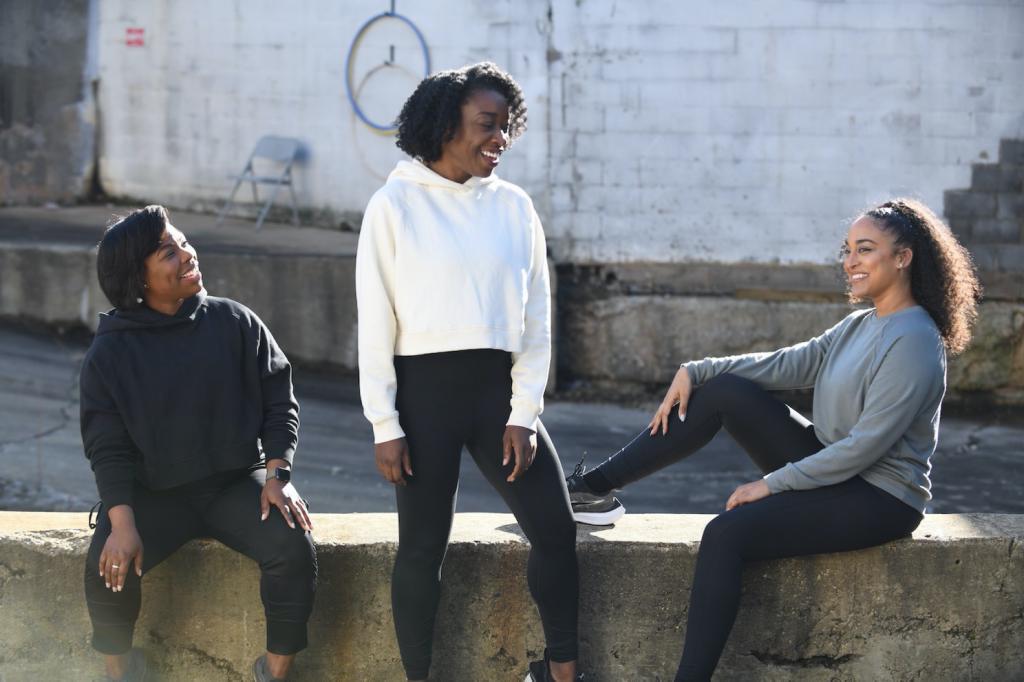
This also means providing a place where we can have candid conversations about things like Black women’s complicated relationships with hair and wellness and organizing events where women can connect, learn, and form a community around their shared experiences. We hope that having spaces like this will have an impact on the wellness of not only Black women in general, but also on their families and communities, to begin to close the gap in health outcomes that exists.
As the wellness industry (and the world) begins to look more closely at ways to affect real change in the current systems of racism, oppression, and injustice, a clear starting point is to use the vast reach and resources available to support the creation of and access to safe spaces for Black people to begin healing and being well.
Na’Tasha Jones is co-founder and chief content officer for RUNGRL, a digital media and event platform providing information, inspiration, and celebration for Black women distance runners. As a Black women’s wellness advocate, she is passionate about creating health and fitness content, communities, and events that are both inclusive and authentic.

